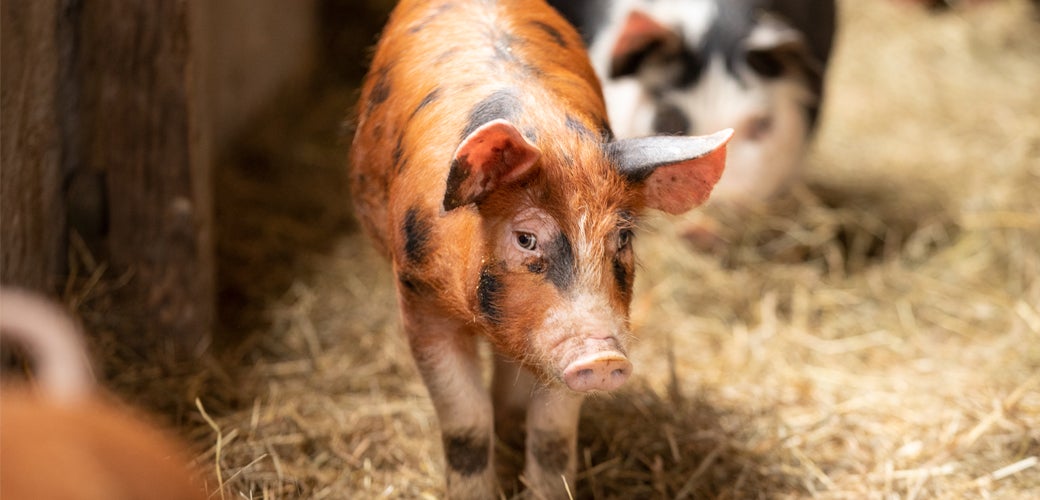

We at the ASPCA are continuing to do our part to protect animal welfare during the COVID-19 pandemic. We’ve already launched a $5 million relief and recovery initiative to support animal welfare organizations and pet owners impacted by coronavirus. We want to further help by ensuring that the federal government prioritizes the protection of farm animals and the higher-welfare farmers who raise them during this crisis.
Current economic conditions threaten the welfare of farm animals, who may suffer from feed shortages, inadequate access to care, and more stressful transport and slaughter conditions. The independent farmers who are leading the efforts to build a more humane food system may find their livelihoods in jeopardy—and if they are not adequately supported, significant progress and societal shifts toward more welfare-oriented systems may also be lost.
Last week, the ASPCA sent a letter to U.S. Department of Agriculture (USDA) Secretary Sonny Perdue urging the agency to direct funds provided to the agricultural sector by the Coronavirus Aid, Relief, and Economic Security (CARES) Act toward improving the lives of farm animals and those working to support them. This includes higher-welfare farmers, food chain workers, local food systems, public schools and institutions, and rural communities.
The letter, which you can read here [PDF], asks USDA to ensure that:
- Relief funds are provided to animal welfare-certified producers and farmers who are transitioning to higher-welfare systems, with a focus on small and medium-sized farmers and other historically disenfranchised farmers who supply local food systems.
- Relief funds do not benefit Concentrated Animal Feeding Operations (CAFOs), often called factory farms, and farms raising animals in cruel confinement systems such as battery cages, veal crates, and gestation crates.
- Support for the USDA’s Child Nutrition Programs enables institutions to continue to provide meals that are not only higher-welfare, but also healthy, local, fair, equitable and sustainable—such as through the Good Food Purchasing Program (GFPP).
- Humane handling protocols continue to be followed in slaughterhouses and inspectors continue to enforce humane slaughter laws at plants that remain open.
- Relief funds allocated for rural development are used to help maintain and improve supply chain infrastructure and services that are critical to higher-welfare producers.
The ASPCA is committed to ensuring that the billions of dollars allotted in the CARES Act will prioritize supporting a food system that improves the lives of farm animals, increases the viability of higher-welfare farming, and ensures access to food that aligns with consumers’ values.
Please join the Advocacy Brigade to stay informed about all of the ASPCA’s COVID-19 relief efforts and our work to help farm animals. And check out this news post to learn how you can support welfare-certified farmers near you and across the country.
Source: Read Full Article